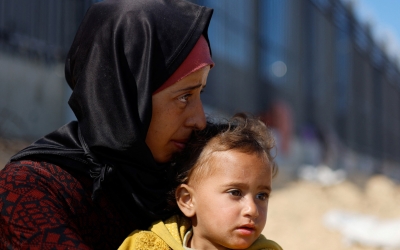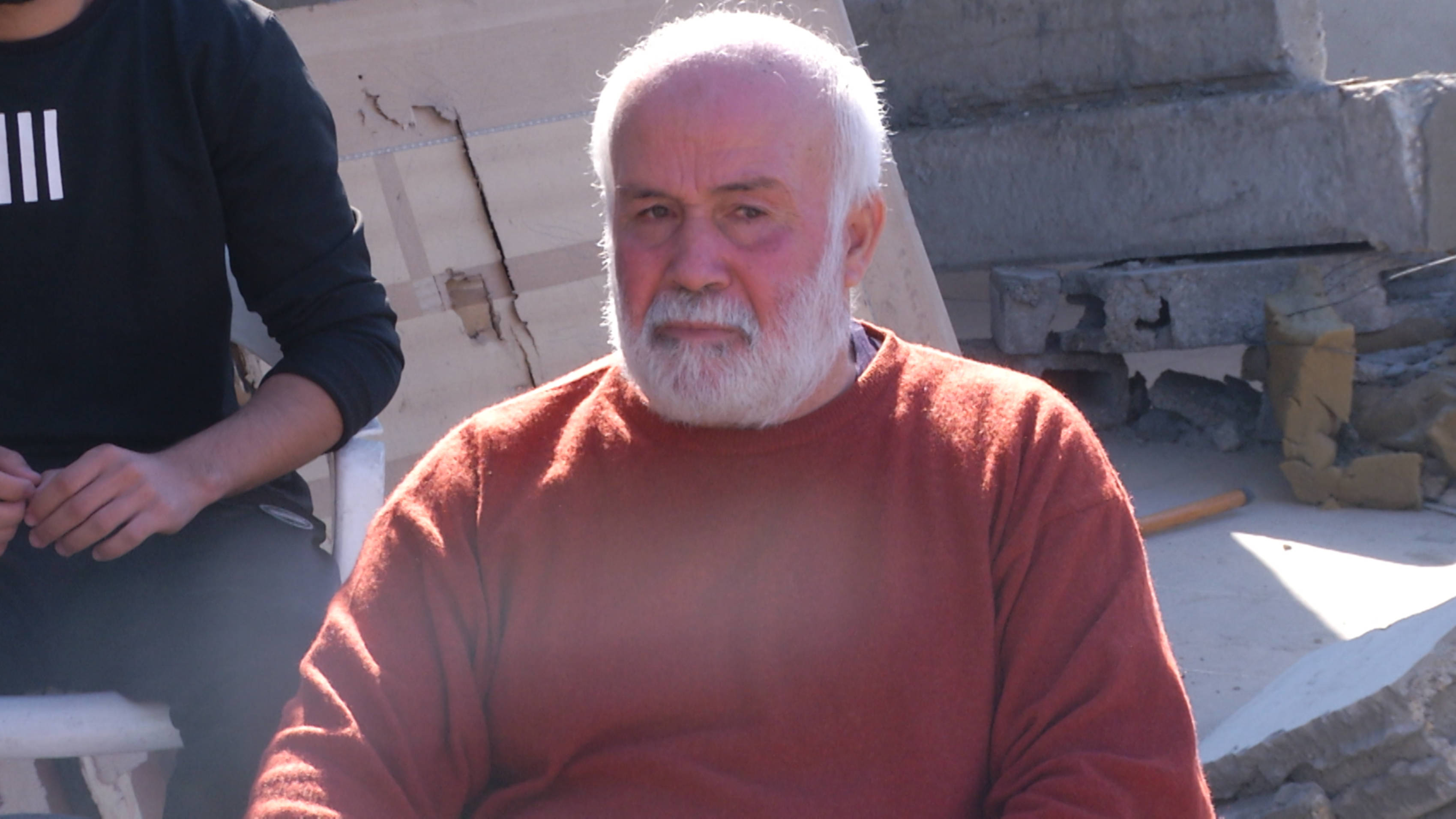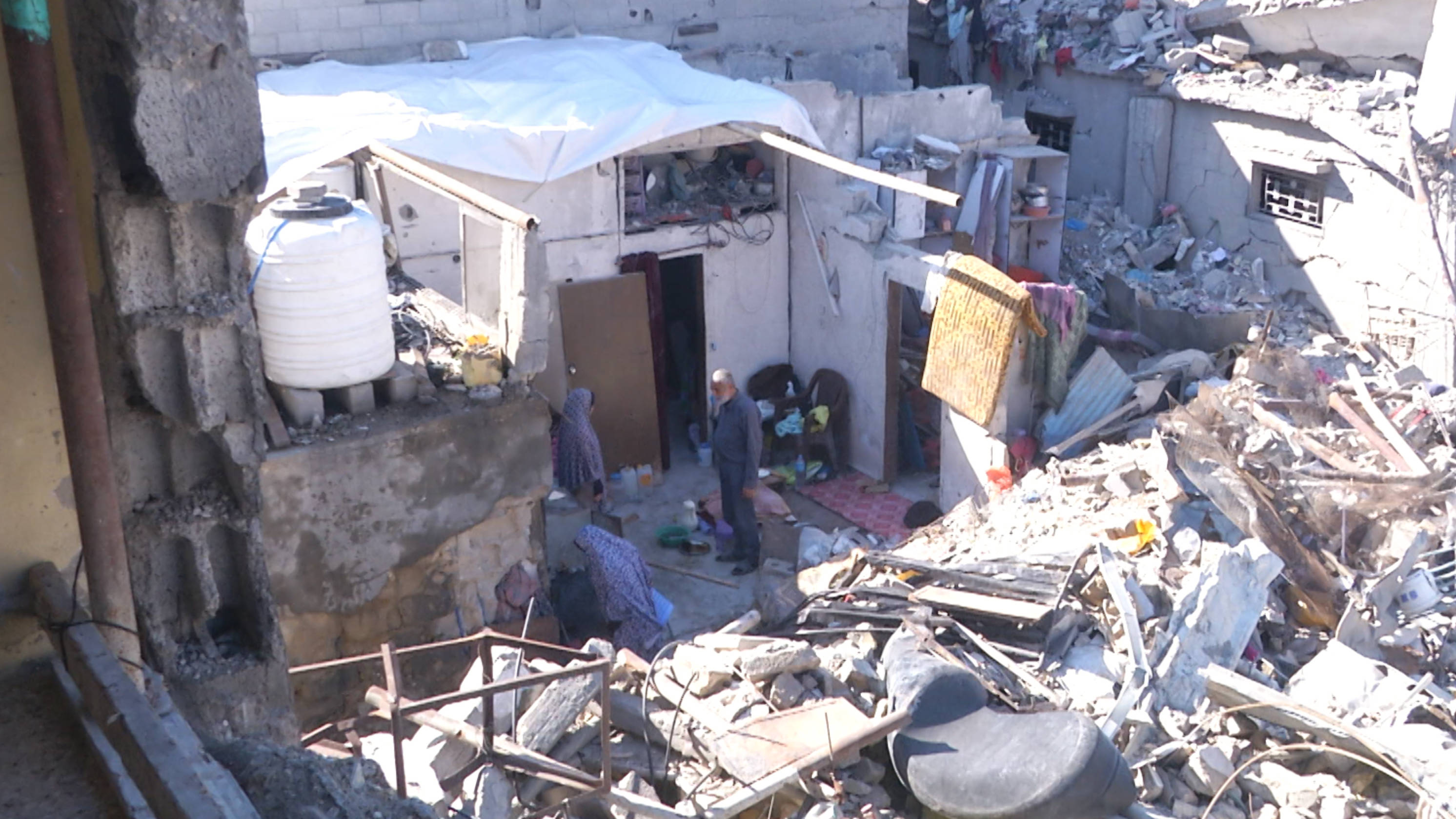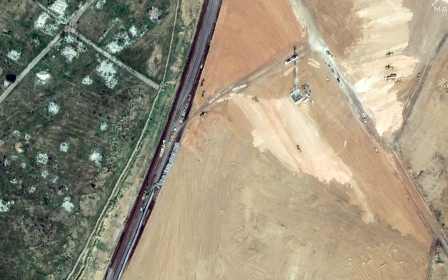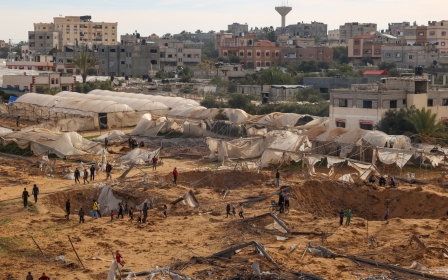War on Gaza: Children sleep in chicken cages in Rafah as families grow desperate to find shelter
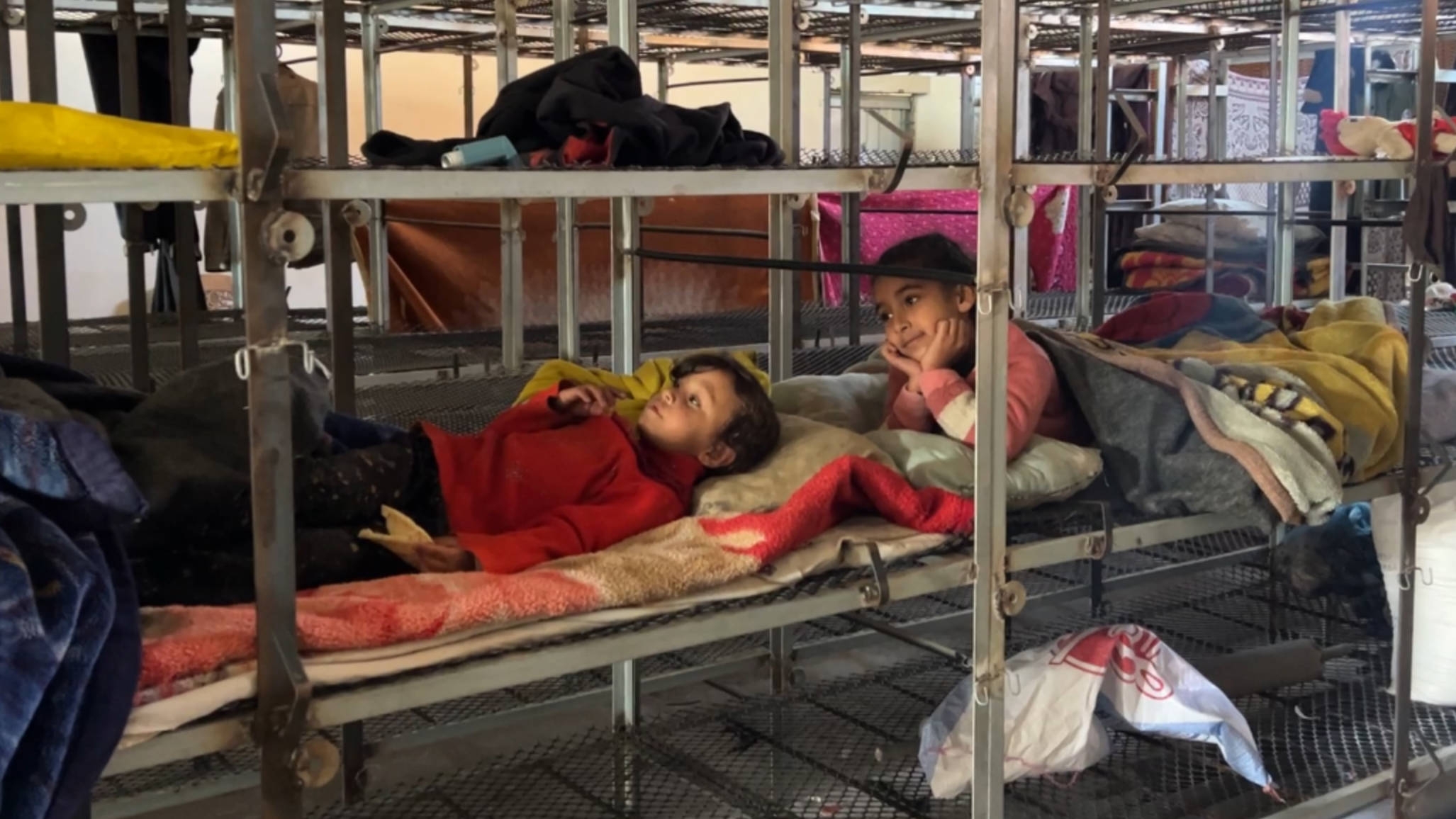
Finding shelter in the Gaza Strip, whether in a basic tent on the street or in an overcrowded classroom, has become a luxury for hundreds of thousands of displaced Palestinians.
Israel's offensive has rendered Gaza almost uninhabitable in just four months.
The Israeli army has destroyed or damaged more than half of the buildings in Gaza and continues to steadily shrink safe or liveable spaces across the besieged enclave.
It also forced Palestinians out of their homes in northern and central Gaza towards the south, displacing 85 percent of Gaza's 2.3 million residents.
Around 1.5 million people have sought refuge in Rafah, an area spanning just 64 sqkm, and are now struggling to find enough space to even put up a tent due to extreme overcrowding.
Israel has recently set its sights on Rafah, the last refuge available for Palestinians, escalating its attacks on Gaza's southernmost city and threatening an imminent ground invasion.
Under the threat of more mass destruction and death, and pushed by a lack of options, many displaced families across Gaza have been forced to take extreme measures to find shelter.
Middle East Eye spoke to one of the five families who sought refuge in a farm in Rafah, where they have turned open chicken cages into beds for their children.
'Scared to sleep'
"We decided to come to this farm because we could not find any other place to go to," said Rafat Lukman, whose family of 32 includes newborns and small children.
"We came here thinking that we can put up with it for a few days, but this war has taken much longer. I cannot believe that my own children are sleeping in cages where chickens slept. I look at them and my heart breaks for the childhood I am giving them. But what else could I do?"
From inside the chicken cages, the children can easily spot the Egyptian-controlled Rafah border with its high walls covered with barbed wires.
"My daughter took her teddy bear with her when we evacuated the first time. She'd kept it with her the whole time," Lukman said.
"But the other day, it rained and the farm flooded. She was sleeping in the cage and her teddy fell into the rainwater and got lost. She cried so much about it the next day. And again, her mum and I felt so helpless. We can't even get her a new teddy bear."
Lukman's children say they have become used to their new reality now and it is difficult to remember that one day they had a house and bedrooms.
"We are still lucky that we are not dead and that our parents are alive," Rafat's 12-year-old daughter, Mais, said. "But to be honest, I still feel scared sleeping in the cages. They are very cold and dark at night. I have always hated insects, but they are everywhere here, and I cannot do anything about it."
Living in bombed homes
In central Gaza, meanwhile, displaced people have also been living in squalid conditions due to overcrowding in shelters - which include schools, hospitals and mosques - and lack of basic services, including clean water, sanitation and a working sewage system.
Abu Ahmed Jaber, a father and grandfather, had been sheltering in a UN-run school and decided to go back to his house that was bombed one afternoon while the family was home having lunch.
"The situation in the schools is horrible. They are overcrowded. No toilets, no food, no water and no privacy whatsoever. So I decided to come back with my family to my bombed house and live in whatever space was left standing," Jaber told MEE.
When Israel bombed his house, smoke engulfed the family, blackening the afternoon light.
"We thought we were dead," Jaber said.
The elderly man and his sons pulled out their pregnant sister and her one-year-old daughter from under the rubble with their bare hands. The family fled to a school for shelter, where his daughter bled for hours before an ambulance was able to make its way to them.
Despite their traumatic experience, Jaber, who suffers from heart problems and diabetes, made the decision to return to their destroyed home in Bureij, in central Gaza, because he felt that all other alternatives lacked dignity.
"This is my house. How can I let go of it? I literally built it with my hands stone by stone. I look at it 20 times a day and I struggle with the fact that I cannot even rebuild or fix anything," said Jaber, in a voice full of sorrow and anger.
"I cry every night. I cannot even sleep anymore. If I fall asleep and wake up for any reason, I cannot fall back asleep. I am living a very primitive life amid the rubble, but I would rather do that than leave my house and evacuate from one place to another like chess pieces. And what for? What have I and my family done?
"I have realised that no one cares because we are in Gaza," he added. "We have turned into videos for people to watch. Why is it so hard to give us our very basic rights that are granted to us by all international laws? I cannot understand the world."
The displacement of almost two million people in Gaza has brought back memories of the Nakba, or catastrophe, in 1948 when 750,000 Palestinians were forcibly displaced from their homes by Zionist militias to make way for the newly-created state of Israel.
'I cry every night. I cannot even sleep anymore. If I fall asleep and wake up for any reason, I cannot fall back to sleep'
- Abu Ahmed Jaber
Palestinians in Gaza are living today what their grandparents lived over 70 years ago, and the fear of never being able to return is at the heart of their concern.
"If the house is destroyed, the land is still there, and it is mine. I would rather die here than live another Nakba like my family did before me," Jaber said.
"I am not asking for help to leave or evacuate. I am asking for an end to this war and help in rebuilding my house and rebuilding Gaza.
"All I really want is peace. I want to see my children get married, have jobs and look forward to their future with their own children."
Middle East Eye propose une couverture et une analyse indépendantes et incomparables du Moyen-Orient, de l’Afrique du Nord et d’autres régions du monde. Pour en savoir plus sur la reprise de ce contenu et les frais qui s’appliquent, veuillez remplir ce formulaire [en anglais]. Pour en savoir plus sur MEE, cliquez ici [en anglais].


